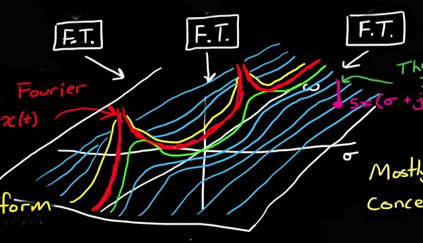Where is God in All of This?
August 30, 2016
on
on

Did you watch, live on YouTube on 19 July, the spacewalk by the astronauts to cable up a new docking module for the International Space Station? It wasn't terribly exciting, it was hot that day here on earth and the competition of the Olympics was strong. But as I have a fondness for DIY, I held on for a moment.
Then my attention was drawn by other videos, notably on the Juno mission, a space probe launched in 2011 and placed in orbit round Jupiter this summer after a journey of 5 years. This marvel of programmed microelectronics has passed largely unnoticed in the babble of the news.
To stitch it all up, I came to read on Wikipedia about Jupiter, then about Laplace, father of the precious transforms, physicist and astronomer, one of the first to examine this planet closely. Without computers or space probes.
The question of the long term stability of the solar system and the complex gravitational interactions of the sun and planets did not seem to allow a simple analytical solution. We read that “Newton himself had doubted the possibility of a mathematical solution to the whole, even concluding that periodic divine intervention was necessary to guarantee the stability of the Solar System".
Convinced in determinism, Laplace however stated: “We must see the present state of the universe as a result of its previous state, and as the cause of the state that follows.” He conjectured on the existence of what we now know as black holes. He contributed to what has become the theory of probability. When Napoleon asked him about the absence of God in his works, Laplace, although a good Christian, replied that he’d be able to do without him in this theory.
Then he changed his mind. Absent from the first edition of his work “Celestial Mechanics”, the word “God” appears in succeeding editions. From servility? His formidable scientific discernment does not prejudge the ethics of the scientist. And Laplace, initially an eager revolutionary, he promptly changed camps when Napoleon became emperor and with his successors. Everything transforms….
Let’s hope that we will never have to make such heartrending choices.
Then my attention was drawn by other videos, notably on the Juno mission, a space probe launched in 2011 and placed in orbit round Jupiter this summer after a journey of 5 years. This marvel of programmed microelectronics has passed largely unnoticed in the babble of the news.
To stitch it all up, I came to read on Wikipedia about Jupiter, then about Laplace, father of the precious transforms, physicist and astronomer, one of the first to examine this planet closely. Without computers or space probes.
The question of the long term stability of the solar system and the complex gravitational interactions of the sun and planets did not seem to allow a simple analytical solution. We read that “Newton himself had doubted the possibility of a mathematical solution to the whole, even concluding that periodic divine intervention was necessary to guarantee the stability of the Solar System".
Convinced in determinism, Laplace however stated: “We must see the present state of the universe as a result of its previous state, and as the cause of the state that follows.” He conjectured on the existence of what we now know as black holes. He contributed to what has become the theory of probability. When Napoleon asked him about the absence of God in his works, Laplace, although a good Christian, replied that he’d be able to do without him in this theory.
Then he changed his mind. Absent from the first edition of his work “Celestial Mechanics”, the word “God” appears in succeeding editions. From servility? His formidable scientific discernment does not prejudge the ethics of the scientist. And Laplace, initially an eager revolutionary, he promptly changed camps when Napoleon became emperor and with his successors. Everything transforms….
Let’s hope that we will never have to make such heartrending choices.
Read full article
Hide full article


Discussion (7 comments)